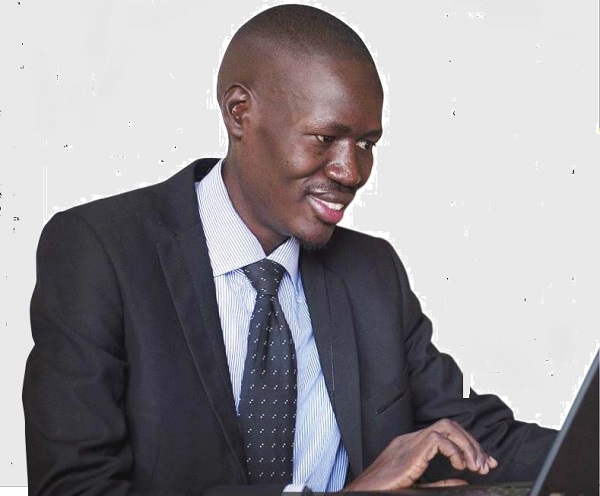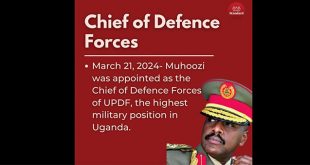
A pair of African sandals hangs on the wall of the reception of Barefoot Law offices in Kampala. Gerald Abila the founder and Executive Director of Barefoot; an entity that uses technology to enable access to justice to underserved communities in Uganda, speaks fondly of the sandals. “That was a 2013 Christmas gift although I ended up getting it in February 2014 for it first got lost on a bus,” he says.
Abila who is a multi- award winner for his unique model of providing justice cheaply calls it his first and most cherished award which was the first justification that his work was impacting someone. The sandals were a gift from a man who Barefoot Law had helped to resolve a family land dispute.
Abila who was in 2014 recognised as one of the 10 most influential legal persons in the world by the American Bar Association became the first from Africa to receive such recognition. He has since become a perennial award winner with various accolades both locally and on the continent. Barefoot Law started as a knowledge sharing initiative when he was still a student at Makerere University law school in 2012. He used his Facebook page and later an SMS platform to share whatever he had learnt driven by the passion to fulfill needs of disadvantaged people in the community who were ignorant about the law. He had suffered because of ignorance of the law before. As he told The Independent, before he joined law school, he had started a computing firm together with some friends but it collapsed partly because they were ignorant about the law. They had no clue on issues of policy and shareholding.
He says that because many people do not know how the law can rescue them, only 1% of those with disputes seek help from a lawyer or legal aid organisation.
“Even those who know don’t know how to access them; that’s why I decided to open people’s eyes legally. I could have gotten a job very quickly because I graduated top of my class but I chose to focus on a Facebook page with no promise of earning.”
He initially shared information he thought would be important to the people; like the procedure to get bail, how to write a will, how to do shareholding, and how to write a contract. Eventually people started asking questions and soon it became big and they had to come up with other avenues such that people of all walks could access this free counsel. They have now done radio programmes and a free SMS service for people in hard to reach areas to send in their questions and get feedback. Abila says he is constantly innovating and coming up with best means to address new challenges. The latest is that, considering illiteracy levels in some parts of the country and with advice from local leaders, they have started ringing a bell to call villagers to converge for legal trainings.
****
Abila’s lite side
Any three things we don’t know about you?
I love fixing things and I use them until they are absolutely broken. I also enjoy writing short stories and I am a golfer. I started playing golf while still at law school.
What is your idea of perfect happiness?
Perfect happiness is doing what you love. To know what you really love is when you go back into the childhood and think of those things you used to enjoy doing but have probably subconsciously let go of. In Uganda we pursue knowledge for financial gain and not knowledge as knowledge itself. That’s why you find people not happy about what they do.
What is your greatest fear?
Fear is my greatest fear. Many people have that inherent fear that they will fear to make important decisions in their life.
What is the trait you most deplore in yourself?
It has something to do with self drive and control. I can be too rigid at times when it comes to fulfilling what I need to but I also think I need to relax a bit.
What is the trait you most deplore in others?
Disorganisation
Which living person do you most admire?
My parents because they gave us a gift of letting our minds wander. They bought us books, watched with us documentaries, and let us be what we wanted to be. As a result each one of us went different directions for instance my brother is neurosurgeon, another one is a banker, and the other sibling is into ICT.
 The Independent Uganda: You get the Truth we Pay the Price
The Independent Uganda: You get the Truth we Pay the Price


